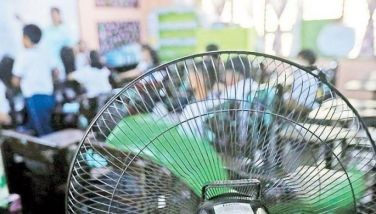Pinoy kids eating more sugary, salty, fatty food

MANILA, Philippines — The food environment in the Philippines is failing Filipino children who eat more sugary, salty and fatty food products, driving the high prevalence of overweight kids and obesity, according to findings of the United Nations Children’s Fund (UNICEF).
A new UNICEF report titled “Children’s lived experience of the food environment” found that children and young people in the Philippines are influenced by similar environmental factors that impact their food choices and eating habits.
By examining the children’s lived experiences, UNICEF was able to pinpoint the policies that the Philippine government and other stakeholders need to strengthen to provide children with better access to healthier diets and living conditions. These improvements are crucial in supporting the growth and development of children in the country.
The report described a day in the life of children from various parts of the Philippines and of different ages.
It said the “lived experiences” of these children highlight the realities of children’s lives and clearly indicate how policies can improve their environments and diets.
The diets of children in the Philippines are changing, according to the study, with children eating fewer fruits and vegetables, and more sugar, salty and fatty products.
Three quarters or 74 percent of children aged 13–15 years old eat less than three portions of vegetables per day while more than one-third (38 percent) drink at least one softdrink per day.
Among children aged five to 10 years old, overweight rates increased significantly from 10.4 percent in 2019 to 14 percent last year while among adolescents aged 10 to 19 years old, it increased from 10.7 percent in 2019 to 13 percent last year.
The report said poor diet contributes to a triple burden of malnutrition with undernutrition, in the form of poor growth and micronutrient deficiencies, co-existing with increasing rates of overweight.
This triple burden of malnutrition is driven by systems that fail to provide children with adequate diet, space to play and exercise, access to safe water and hygienic environments, and financial security.
“Malnutrition is a serious violation of a child’s right to adequate nutrition and can have serious long-term consequences to a child’s health, development and well-being. Children need a varied and nutritious diet for their growth and development, and caregivers need support to provide their children with a healthy diet,” UNICEF Philippines representative Oyunsaikhan Dendevnorov said.
Supported by the Center for Food Policy at City University of London, the study aimed to understand children’s lived experiences of the food environment, and to provide qualitative evidence for policy options to prevent overweight and obesity among children.
It complements a comprehensive landscape analysis that reviewed the extent and risk factors for overweight and obese children, identified the gaps in governance, policies and programs and recommended actions for policymakers.
Evidence from the landscape analysis, a related marketing study, and this study provide a robust rationale for strengthening policies and legislation.
The study detailed recommendations on food, social protection, built infrastructure, education and communication systems, such as introducing mandatory legislation to restrict the marketing of unhealthy food to children, promoting availability of locally produced food at affordable prices, developing safe areas where children can play and engage in sports activities, and enforcing policies and standards to promote healthy school food environments.
The climate crisis, economic shocks and rising prices are hitting vulnerable families particularly hard, according to the study.
- Latest
- Trending
































